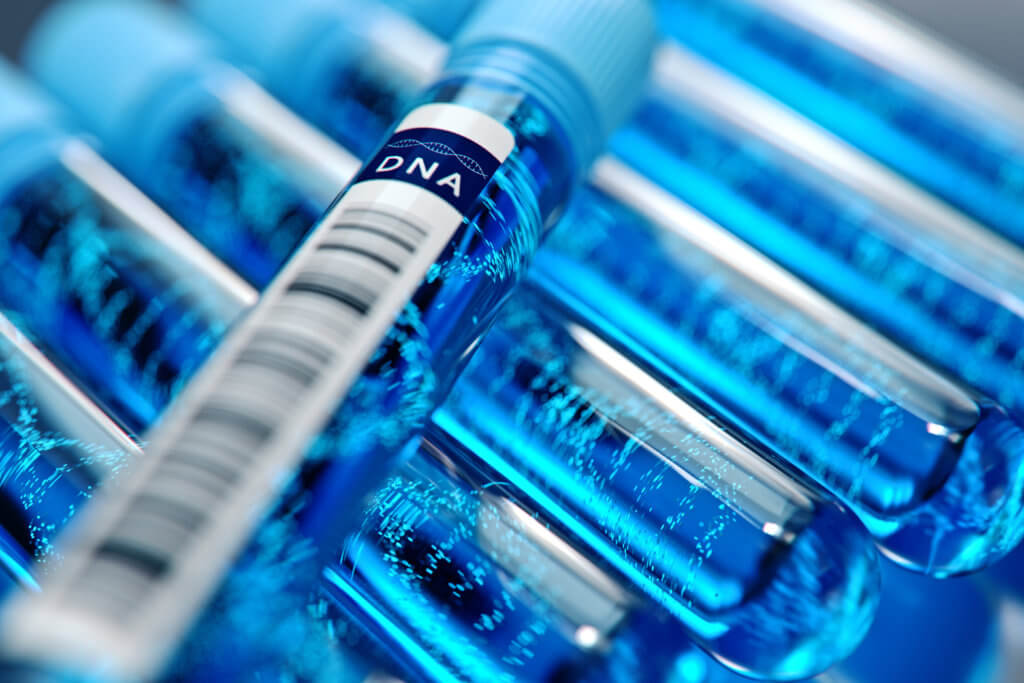
EXETER, United Kingdom — Millions of people have enjoyed the convenience of direct-to-consumer genetic test kits to research their ancestry or to uncover their risk factors for various diseases. However, not all genetic testing is the same, especially when it comes to very rare genetic disorders. False-negatives can give the incorrect impression that all is well, while false-positives can lead some into a medical maze of unnecessary and expensive testing and even surgery.
Researchers with the University of Exeter decided to investigate the situation after hearing alarming reports of women opting for unnecessary surgery because of false-positive test results for the BRCA1 breast cancer gene. What they discovered was shocking. In cases of very rare genetic disorders, one type of genetic test which uses single nucleotide polymorphism (SNP) chips gets it wrong almost every time.
“SNP chips are fantastic at detecting common genetic variants, yet we have to recognize that tests that perform well in one scenario are not necessarily applicable to others,” says senior study author Caroline Wright, Professor of Genomic Medicine, in a university release. “We’ve confirmed that SNP chips are extremely poor at detecting very rare disease-causing genetic variants, often giving false positive results that can have profound clinical impact.”
Why are SNP tests so unreliable?
The Exeter team pitted the reliability of SNP chips (the most common test in direct-to-consumer genetic testing) against DNA sequencing. This is the method most diagnostic labs use to test for rare pathogenic variants.
The broad-brush approach of SNP chips scans for genetic variations at hundreds of thousands of specific locations along the human genome. This process makes it ideal for ancestry tests or for finding common, multifactorial genetic disorders that occur in more than one in 100 people — like type 2 diabetes.
SNP data clustering works well when there are many individuals with similar genotypes. Due to the abundance of genome evidence, it is much easier to find the common genetic evidence. Finding rare genotypes, on the other hand, is akin to finding a needle in a haystack.
Clustering just muddies the evidence when the difference comes down to one single gene mutation. When you consider that there are fewer than one in 10,000 people affected by one of these rare single-gene disorders, there is a much smaller genetic footprint to uncover.
According to genome.gov, 25 to 50 million Americans have one of the roughly 6,800 rare genetic diseases that are most often caused by a single gene mutation. These include hereditary cancers, cystic fibrosis, muscular dystrophy, and Huntington’s disease.
Providing false readings almost every time
For the study, researchers compared previously collected SNP and next generation data from 49,908 UK Biobank participants as well as a small sampling of the genetic test results of 21 direct-to-consumer Personal Genome Project participants.
The results of the comparison found that SNP chips are utterly unreliable at providing test results for the rarest genetic variants. Of the 105,575 most common variants in the UK Biobank group, SNP chips performed with 99 percent accuracy. For the very rarest genetic disease variants however, the DNA sequencing method could only corroborate 16 percent of the SNP results. In other words, there was an 84 percent false-positive rate. The direct-to-consumer test results were just as faulty. Of the 21 commercial participants, 20 (95%) received at least one false-positive for a rare variant because of errors in genotyping.
“The number of false positives on rare genetic variants produced by SNP chips was shockingly high,” study co-author Dr. Leigh Jackson reports. “To be clear: a very rare, disease-causing variant detected using a SNP chip is more likely to be wrong than right.”
How can doctors be sure the results are accurate?
Study authors note that there have been some improvements in accuracy in certain direct-to-consumer companies, but not enough to account for the erroneous information that results when consumers download the raw data and try to analyze it themselves or with the help of a third party.
“Although some consumer genomics companies perform sequencing to validate important results before releasing them to consumers, most consumers also download their raw SNP chip data for secondary analysis, and this raw data still contain these incorrect results,” Jackson adds.
In these situations, researchers say false-positives are sure to happen.
“The implications of our findings are very simple,” Jackson concludes. “SNP chips perform poorly for detecting very rare genetic variants and the results should never be used to guide a patient’s medical care, unless they have been validated.”
Researchers recommend that clinicians always use a standard diagnostic test to confirm any positive SNP results before providing further medical advice. Likewise, negative SNP results in someone with a family history or with symptoms of a disease warrant additional testing.
The findings appear in The BMJ.
"direct" - Google News
June 05, 2021 at 03:09AM
https://ift.tt/34OAy8v
Direct-to-consumer DNA tests almost completely unreliable for finding rare genetic disorders - Study Finds
"direct" - Google News
https://ift.tt/2zVRL3T
https://ift.tt/2VUOqKG
Direct
Bagikan Berita Ini














0 Response to "Direct-to-consumer DNA tests almost completely unreliable for finding rare genetic disorders - Study Finds"
Post a Comment